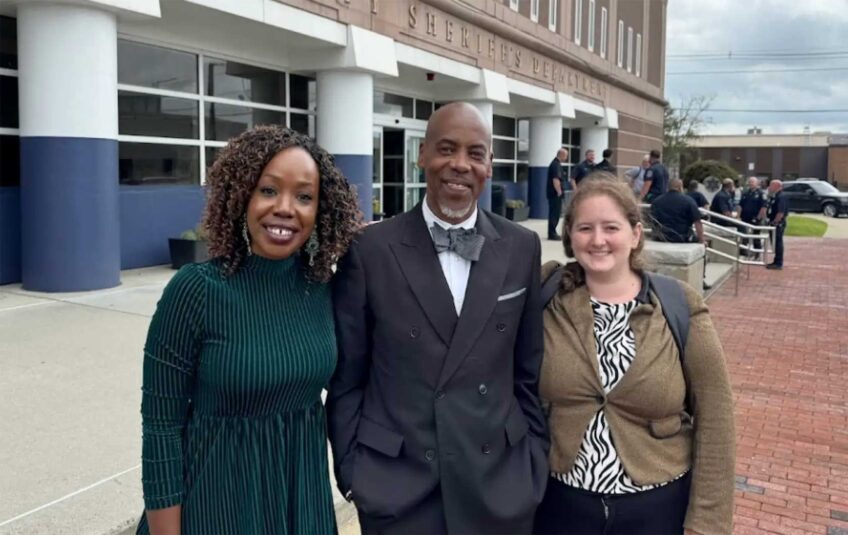Edited by Banner Staff
Councilors Liz Breadon and Lydia Edwards have filed legislation to modernize and reform involuntary private vehicle towing and relocation practices in Boston. The proposed ordinance would establish standards for private towing companies, bringing into line practices of some companies that vehicle owners, public agencies, and consumer watchdogs have viewed as manipulative and predatory. The regulations come at a time when the COVID-19 pandemic has impacted the ability of residents to cover essential everyday costs such as food, rent, and car payments, and recent studies have shown just 39% of U.S. adults could afford a $1,000 unexpected expense.
The proposal, Ordinance Regulating Predatory Towing Practices and Establishing a Towing Bill of Rights will be introduced by councilors Breadon and Edwards at the Boston City Council meeting on Wednesday, August 18, 2021 at 12:00 p.m.
Standards established by the ordinance include mandating that towing companies publish and display their rates, accept payment via credit card as opposed to solely cash, requiring a photograph of the vehicle’s parked position before towing, providing itemized bills detailing charges and reimbursement for damages related to towing or storage. The legislation also prohibits tow operators from cruising or surveilling private property without cause, as an involuntary tow must first be initiated by a request from a private property owner.
Under the ordinance, the Boston Transportation Department would be tasked with proposing guidelines for “No Parking” signs for private property owners to provide sufficient notice of enforced towing. The department would publish and distribute a Boston Towing Bill of Rights to inform consumers of their rights when their vehicle is towed, how to recognize predatory towing practices and an unlawful tow, provide details on how to retrieve their vehicle and how to file a complaint of an unlawful practice. An annual report would be submitted to the City Clerk summarizing the financial statements of tow companies as reported to and regulated by the Massachusetts Department of Public Utilities Transportation Oversight Division.
The ordinance follows the recommendations outlined in a May 2021 report by the Massachusetts Public Interest Research Group (MASSPIRG), “Getting Off the Hook of a Predatory Tow in Massachusetts.” The MASSPIRG report identified existing protections in Massachusetts, including a maximum tow rate of $108, maximum storage rates of $35 per 24-hour period, notification of the tow company to law enforcement of an involuntary tow, release of a vehicle for an incomplete tow at a “drop fee” no greater than half the towing cost, and reimbursement for an unauthorized tow.
“Losing a vehicle, even temporarily, can have profound impacts on an individual and their family’s livelihood and economic stability,” said District 9 City Councilor Liz Breadon. “People who rely on their cars may lose access to work, education, health care, and social services due to an unexpected tow. We certainly need to get more cars off our streets and prioritize affordable, reliable, and accessible public transit and safer biking, but for working-class residents who have had to move further from accessible transit, having a vehicle could be their lifeline. We absolutely must strengthen our regulations to reign in predatory practices of bad actors in the towing industry.”
“Tow operators who cruise or hunt for cars to tow, without cause or first receiving a request from the owner or business, is just plain wrong and unethical,” said District 1 City Councilor Lydia Edwards. “Now is the time to outlaw predatory towing, when families can ill afford to be without their vehicle. These are common sense updates that would help fight back against an industry that is often seen as manipulative and unfair.”
“If passed, these new towing rules are important consumer protections for Boston residents and those who work in and visit the city. Under the best circumstances, getting towed is an ordeal, even when justified,” said Deirdre Cummings, Consumer Program Director for MASSPIRG. “For many drivers, however, the situation is compounded because the current consumer protections are weak and outdated. Preventing tow companies from only taking cash, requiring better disclosure of rates and itemized bills, requiring a photograph of the car before a tow, and preventing the practice of predatory towing are common sense yet critical consumer protections.”






